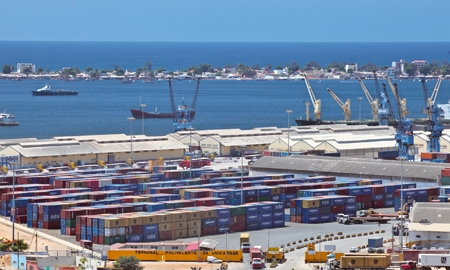Up to $350 million is being invested in the Port of Luanda, one of Africa’s busiest and most congested ports, in an effort to restructure the harbor and its facilities. This was announced at a meeting between port and government officials and a visiting U.S. delegation.
The capital injection has been welcomed by Victor De Carvalho, CEO of the
Maritime and Port Institute of Angola, known as
IMPA, the body that oversees the country’s ports.
De Carvalho explains how his agency works in more depth: “IMPA is the institution overseen by the Ministry of Transport responsible for port and maritime policy. IMPA monitors, guides and supervises all activities related to shipping and transport, including the licensing of any activity inside the sector.
“IMPA plays a key role in the national economy: if IMPA does not drive its policies related to merchant shipping and ports operations properly, the companies of the sector will not function properly. And if ports, captaincy and national flagship companies don’t work properly, both the merchant shipping and the ports start declining. If that happens there will be a negative impact on the economy.
“Alternately, if there is a wealth of business development from the maritime sector agents ruled by IMPA there can be a very significant contribution towards the development of our economy. Almost everything that comes in and goes out happens through ports, so if ports are not working properly we will have problems in the country. Our product will lose credibility outside and there will be a kind of dysfunction in our economy.”
Meanwhile, the U.S. delegation also held a meeting to discuss bilateral trade and investment opportunities. “Angola’s international partners and investors recognize that the country is moving in the right direction and has great potential,” says Florie Liser, the U.S. Assistant Trade Representative for Africa.

0 COMMENTS